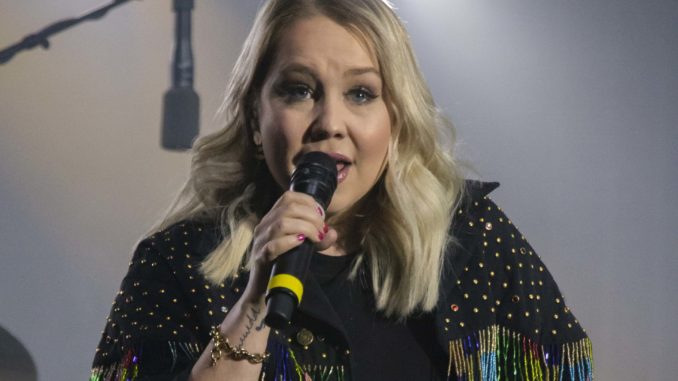
TMN opinions and features editor Elisabeth Shirk sat down with country music singer RaeLynn when she came to campus to perform last weekend with Hunter Hayes for SAB’s spring concert.
When did you know that music was what you wanted to do?
“I grew up around a really musical family in Baytown, Texas, so for me it was kind of in my blood and I couldn’t picture myself doing anything else. But when I decided that it was gonna be my career, I was like 16 years old, which I guess is still pretty young, but that’s when I decided that I was going to solely focus on music. It was really the only thing I was good at, besides making people laugh.”
So if you weren’t doing music, you would probably be doing comedy or something?
“Heck yeah I would be a comedian. Or I would do hair. I would definitely be in the creative field, just in another way. But don’t trust me cutting hair. I would suck, but if I went to school for it I think I would be pretty good.”
What did you learn from your experience on “The Voice?”
“The biggest thing that I learned was how to do interviews, because I was 17 on the show and I never had any experience doing anything like that. Learning how to do choreography on stage, what it was like to work with a real band. The only band I had ever worked with was my band at church, so to have real musicians that knew what they were doing was really cool. And just the experience you get from being on television, getting critiqued every week, and bettering yourself — that was all really great experience.”
When you left “The Voice,” how did you take that experience, which was likely disappointing, and turn it into a successful career?
“Being on ‘The Voice’ is already like a win. There’s so many stages you have to go through just to get on the show. I think there were 120 people that they actually fly out [to be on the show]. So think about the thousands and thousands of people who audition and you’re one of the 120 that they pick to actually be on the show. So when you think of it that way, there’s only one person who is going to win and you can’t be upset if that’s not you. That’s one way I always kind of looked at it: if I win, great, but if I don’t, I’m still a winner because I made it onto the show and a lot of people don’t even get that far. Going in with that mindset really helped me, and of course it was hard, but it was a really awesome experience and going through that little bit of rejection really struck a fire in me to prove myself even more.”
I read that you were diagnosed with Type 1 diabetes. How do you manage that when you are on tour and performing?
“A lot of just checking my blood and everybody around me always has a snack or orange juice if something ever happens, if my blood sugar drops. My main thing with having Type 1 diabetes is you always have to keep everyone around you aware about the disease you have. I think that’s the biggest thing where a lot of diabetics don’t want to tell people about their disease, but it’s important to tell people, because what if I passed out and the person around me doesn’t know? So I think educating people around you is the most important thing.”
How do you make time for friends and family when you’re on tour?
“I’ll bring them on the road with me, or FaceTime is a big thing. I’ve missed a lot of birthday parties and significant things in my friend’s and family’s lives, but they understand with the career that I’m in. I have an alarm on my phone that reminds me to call my dad at least once a week. Little things like that to remind you that it’s important to check on those relationships.”
This interview has been lightly edited for length and clarity.
